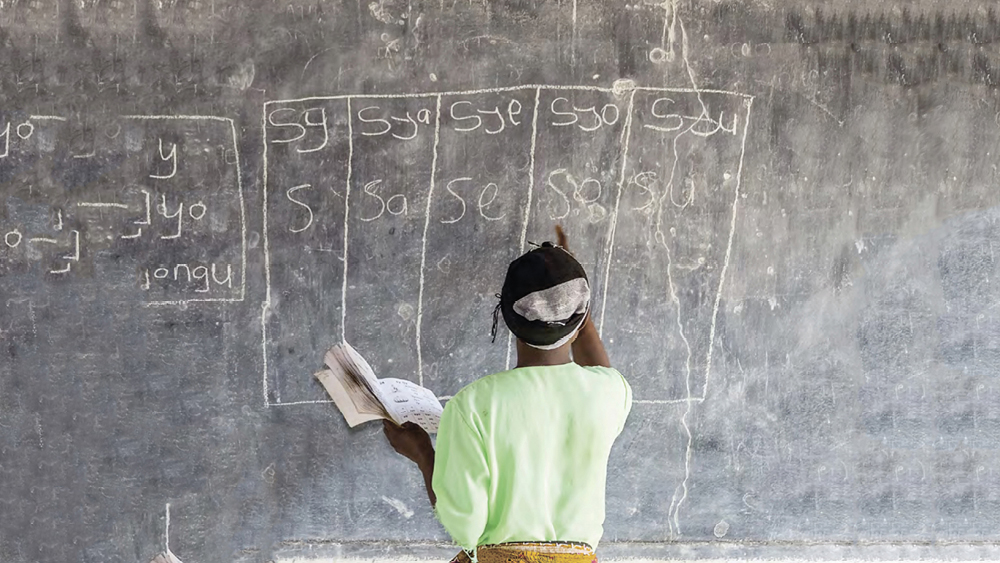Releasing women from illiteracy
Benefits flow through African communities as daughters, sisters, mothers learn to read
Other villagers teased Elisabeth about her age when she joined a literacy class in her village in Malawi. She didn’t let it bother her, though; she shot back: “I’m learning now and one day I will help you to learn!”
Elisabeth’s comment underscores the long-term effects of giving women access to education – it starts a chain reaction in the society. A literate woman makes sure that her children gain an education. And families are proud of the woman’s achievements, which give her a voice in her community and a chance to participate in decisions that affect her life.
Education is encouraging girls to fight for the right to make their own life choices.
Equally, girls who are taught to read can influence their parents. For example, in Kenya, where female circumcision and child marriage (even at age 12) is common among the Maasai, education is encouraging girls to fight for the right to make their own life choices.
“When a girl is taught how to read, she learns more about her rights, and will say no to female circumcision,” comments a Bible Society staff member in Kenya. “She then influences her parents, who don’t proceed with the circumcision.” (Female circumcision is illegal in Ethiopia, Kenya and Tanzania.)
UNICEF estimates that two-fifths of all African girls are married before the age of 18. Education gives them the confidence to speak up for the right to continue their studies and, eventually, even to decide how many children to have. It also improves women’s health knowledge and employment prospects.
These are some of the reasons why Bible Societies in four countries in sub-Saharan Africa are focusing their literacy efforts on women, believing that this is the fastest way to eradicate illiteracy.
This project enables [women] to read God’s word in their mother tongue.
The Literacy for Women in Africa project was launched last year with a pilot programme with 179 women in the Yao community in Malawi. It was spearheaded by the Finnish Bible Society to ensure a new translation of the Bible into Yao could be read.
The project is now being expanded to include 16 minority languages and covers three neighbouring countries – Kenya, Ethiopia and Tanzania – as well as Malawi. The 16 minority languages selected have all recently had New Testaments published in their languages – so this project enables them to read God’s word in their mother tongue.
Sub-Saharan Africa has one of the fastest-growing Christian populations in the world, where they are relatively young and have more children than Christians elsewhere. By 2060, more than four in ten Christians will call sub-Saharan Africa home, up from 26 per cent in 2015, according to a new analysis of demographic data by Pew Research Center.
The goals are to equip 20,000 women with functional literacy by the end of 2020 and to build the capacity of the four Bible Societies to effectively run these projects in the future.
The Bible Societies say that for $40 they can help teach a person to read and give them access to God’s word in their own language.


